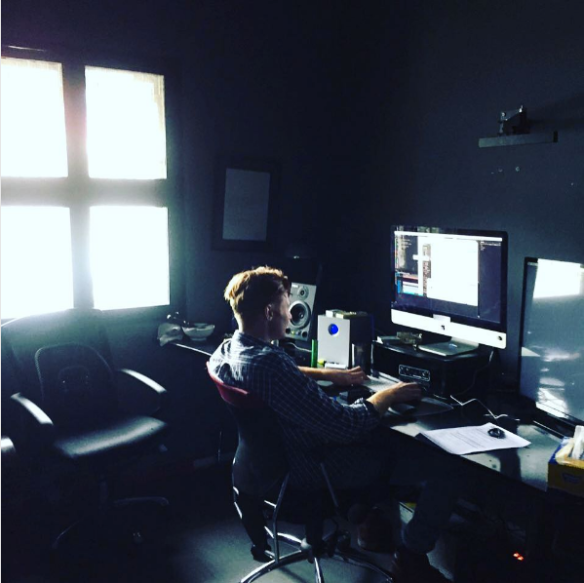
- What have you learned in the process of doing post-production for Surviving in Borneo series?
Editing Surviving Borneo has taught me a lot. My role in this project included a lot of post-producing, so it’s taught me a little more about how the Post-Production producers work.
- Take a look back; from start to end, what was the most memorable/valuable things happened to you during this process?
I think the most valuable thing was having the space to be creative. The Discovery team are amazing to work with; always open to ideas and new approaches. That creative freedom was really valuable.
I’m just grateful that Emile and Ira (producers), took a chance on me and brought it over here to Vietnam, I’ve learned a lot from working with them and it’s been a real pleasure.
- What struggles did you encounter?
Well this is the first time I’ve taken on such a large scale post-production project so at first it looked quite daunting, but with thorough planning, Quang Vu (the assistant editor) and I managed to organize the logistics effectively. Perhaps the toughest thing was the initial process of getting the rushes into shape and finding the story. I tried to have an open mind with what we were doing, and let the material guide me, rather than forcing ideas or being too sentimental with certain scenes. As always, it was quite tough letting go of scenes that you had become attached to, but looking back there’s nothing that I regret removing.
- How is the feeling of seeing someone for months but he don’t know a thing about you? (Situation like you and the man in the show)
It’s quite strange really. Actually, Henry is probably the person that I’ve seen the most of in the past year, but of course, I’ve never met him. It’s also strange, because Henry’s journey sort of mirrors my own. We are both 29, with mixed heritage and were both about to get married. Editing the series, in a way, was my own ‘Bejalai’ (Henry’s rite of passage journey). Cutting the last episode was very emotional for me.
There are plans for me to meet him at some stage, which will be very strange indeed, but I’m quite looking forward to it.
- As an editor of the series, can you tell us why we should watch this series?
I think the series is a departure from the regular Discovery Channel content. I like its rawness, its humanity and pathos make it unique and I think this is what will make it enjoyable for audiences.
- If you have chance, do you want to go to Borneo and experience things that happened in the series? Why or why not?
Of course, there are already plans to hold a screening over there at some point in the near future. I’ve seen these people on my computer screen, but I’ve never met them, so I’d love to find out what they’re like in real life. I think Henry’s journey was an amazing insight into Borneo today, and I’d really like to experience it one day too.


